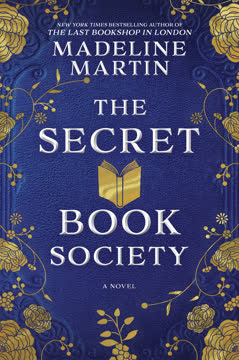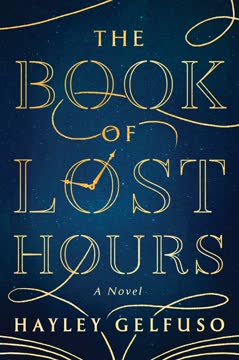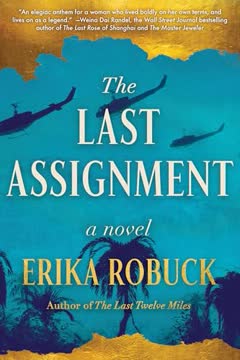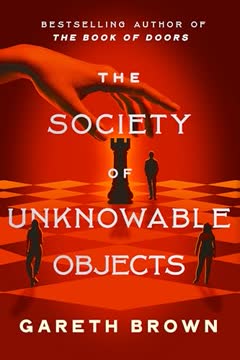Plot Summary
Invitation to Rebellion
In 1895 London, Lady Duxbury receives a desperate message: a friend has been taken to an asylum. The catalyst is a single, rose-embroidered boot—proof of the abduction and a symbol of the dangers women face. This crisis is rooted in Lady Duxbury's attempt to create a sanctuary for women oppressed by their families and society. Her secret book society, meant to offer freedom and friendship, has become a source of risk. The prologue's tension sets the stage for a story about the cost of female solidarity and the perilous consequences of seeking autonomy in a world that punishes women for independence. Lady Duxbury's resolve is tested as she prepares to rally her network, knowing that the fate of her friends—and perhaps herself—hangs in the balance.
Four Women, One Secret
Two months earlier, Eleanor Clarke, Rose Wharton, and Lavinia Cavendish receive mysterious invitations from Lady Duxbury to join a secret book society. Each woman is trapped: Eleanor by her abusive, controlling husband; Rose by the suffocating expectations of English society and a failing marriage; Lavinia by her family's fear of her "madness" and emotional intensity. Their first meeting is tentative, but the promise of friendship and forbidden books ignites hope. Lady Duxbury's library becomes a haven, and the women begin to share their stories, discovering that their struggles are not unique. The society is more than a book club—it is a lifeline, a rebellion against the roles forced upon them, and a fragile alliance in a world eager to silence them.
Books and Bondage
The women's lives are tightly controlled by the men around them, who restrict their reading as a means of maintaining power. Eleanor's husband monitors her every move, Rose's brother-in-law pressures her to conform, and Lavinia's father removes books to "protect" her from emotional instability. Yet, through Lady Duxbury's library, they access stories of female agency and passion. The act of reading becomes an act of resistance, and the books themselves—Austen, Brontë, Poe—mirror their desires and fears. The society's discussions reveal the deep hunger for autonomy and the dangers of being labeled "hysterical." The library's secret compartment, housing Lady Duxbury's diary, hints at darker secrets and the high stakes of female rebellion.
The Library's Hidden Diary
Eleanor discovers Lady Duxbury's diary, a chronicle of her own harrowing journey through forced marriages, abuse, and the loss of her beloved son. The diary exposes the ways women are traded, silenced, and punished for defiance. Lady Duxbury's story is one of endurance: escaping a brothel, surviving violent husbands, and losing her child to neglect and cruelty. Her eventual empowerment comes not from marriage, but from friendship, knowledge, and the creation of a safe space for other women. The diary's revelations deepen the bond among the society's members, offering both warning and inspiration. The past and present intertwine, showing that the struggle for freedom is both personal and collective.
Sisterhood in Shadows
The women's connection grows as they share vulnerabilities and defend one another against society's judgment. Rose's American boldness, Lavinia's poetic passion, and Eleanor's quiet empathy become sources of strength. Lady Duxbury's home is a sanctuary, but also a battleground—her staff are former outcasts, her library a site of subversion. The society's meetings are filled with laughter, tears, and the exchange of secrets. Yet, the threat of exposure looms: gossip, jealous rivals, and the ever-present risk of being deemed "mad" or "unfit." The women learn that true friendship requires courage, and that solidarity is their greatest weapon against the forces that seek to destroy them.
The Poison Garden
Lady Duxbury reveals her secret garden of poisonous plants, a metaphor for the dual nature of female power: the ability to heal and to harm. The garden is both a practical resource—herbal remedies for pain, anxiety, and childbirth—and a symbol of the knowledge women have been denied. The plants' beauty masks their lethality, just as the women's outward compliance hides their inner strength. Lady Duxbury's lessons in herbalism and self-defense (hatpin fighting) equip the society with tools for survival. The garden's locked gate and hidden key echo the secrecy required to protect themselves, and foreshadow the drastic measures some may take to escape their cages.
Hatpins and Defiance
At a country retreat, the women are taught to wield hatpins as weapons—a subversive skill that transforms an everyday object into a means of self-defense. The lesson is both literal and symbolic: they are no longer passive victims, but active agents in their own lives. The training session is filled with laughter, camaraderie, and a sense of empowerment. Eleanor, imagining the need to protect her son, excels. The experience bonds the women further, and the retreat becomes a turning point. They realize that resistance can take many forms—words, knowledge, friendship, and, if necessary, violence. The hatpin becomes a motif for the hidden strength of women.
Madness and Men
The specter of "madness" is ever-present. Lavinia's father threatens her with commitment for her passionate poetry; Rose's brother-in-law uses the threat of the asylum to control her; Eleanor's husband ultimately acts on it. The asylum is a tool of patriarchal power, a place where inconvenient women are disappeared. The society's discussions about literature, emotion, and hysteria reveal the arbitrary nature of these accusations. The women's fear is real, but so is their determination to resist. The line between sanity and madness is shown to be a matter of perspective—and of who holds the power to define it.
The Asylum's Door
Eleanor is betrayed by her husband and her trusted doctor, forcibly committed to Leavenhall Lunatic Asylum. The experience is brutal: she is stripped, humiliated, drugged, and chained. The other inmates are a mix of the truly ill and those, like her, who have been unjustly confined. The boot she throws from the carriage window—a desperate message to Lady Duxbury—becomes her only hope. The society rallies to her aid, using every resource at their disposal: legal connections, bribes, and the solidarity of women. The rescue is a race against time, and a testament to the power of collective action.
Rescue and Reckoning
With the help of Lady Duxbury, Rose, Lavinia, and a sympathetic solicitor, Eleanor is freed from the asylum after five harrowing days. She is physically and emotionally shattered, but determined to reclaim her son and her life. Lady Duxbury provides her with a vial of poison—an ultimate safeguard. Eleanor returns home, confronts her husband, and, when he threatens her and her child, fate intervenes: Cecil chokes on a poisoned date, a final act of poetic justice. Eleanor's escape is both literal and symbolic—a breaking of chains, a refusal to be silenced, and a victory for all the women who have suffered in secret.
Freedom's Price
Eleanor's freedom comes at a high price: trauma, loss, and the need to flee England for safety. Yet, she is not alone. The society's network ensures her escape, her maid is rescued from prison, and her son is safe. Rose finds reconciliation and love with her husband, Lavinia is accepted by her family and allowed to pursue her poetry, and Lady Duxbury continues her mission to help women in need. The story acknowledges that liberation is never easy or complete—there are scars, regrets, and ongoing battles. But the women's courage and solidarity have changed their lives, and the world around them.
New Beginnings, Old Wounds
In the aftermath, the women rebuild: Eleanor starts anew in Suffolk, Rose becomes a mother and a leader in charity, Lavinia finds love and a voice, and Lady Duxbury opens her society to more women. The diary, once a record of suffering, becomes a testament to resilience. The society's legacy is not just in the lives it saves, but in the example it sets—a blueprint for female empowerment. The wounds of the past linger, but they are no longer sources of shame. Instead, they are reminders of what has been overcome, and of the work still to be done.
The Power of Words
Throughout the narrative, books are more than entertainment—they are lifelines, weapons, and mirrors. The women's reading shapes their understanding of themselves and their world. Poetry, novels, and diaries become tools for self-expression and resistance. Lavinia's poetry, once a source of danger, is now celebrated. The society's discussions about literature foster empathy, courage, and critical thinking. The written word is shown to be both dangerous and redemptive—a force that can change hearts, minds, and destinies.
Love, Loss, and Liberation
The women's journeys are marked by love—romantic, maternal, and platonic—and by loss. Lady Duxbury's grief for her son and lover, Eleanor's fight for her child, Rose's struggle to save her marriage, and Lavinia's quest for acceptance are all intertwined. Liberation is not just escape from physical bondage, but from the internalized shame and fear imposed by society. The story ends with new beginnings: marriages, births, and the expansion of the Secret Book Society. The women's happiness is hard-won, and their freedom is a legacy for those who come after.
The Secret Book Society Endures
In the epilogue, Lady Duxbury reflects on the society's impact: lives saved, friendships forged, and a movement begun. The society is now a beacon for women in need, a place where voices are heard and wounds are healed. The final image is one of hope—a new member arrives, seeking refuge and connection. The story closes with the promise that as long as women support one another, the forces that seek to silence them will never prevail. The Secret Book Society endures, a testament to the enduring power of sisterhood, courage, and the written word.
Characters
Lady Clara Duxbury
Lady Duxbury is the architect of the Secret Book Society, a woman forged in the fires of abuse, loss, and survival. Her past is a tapestry of forced marriages, the death of her beloved son, and the betrayal of friends. She channels her pain into action, creating a sanctuary for women like herself. Her psychological complexity lies in her simultaneous vulnerability and strength—she is haunted by trauma, yet refuses to be defined by it. Her relationships with the other women are maternal, protective, and at times enigmatic. Through her, the novel explores the costs and rewards of female solidarity, the dangers of defiance, and the healing power of friendship and knowledge.
Mrs. Eleanor Clarke
Eleanor is a noblewoman trapped in a gilded cage by her abusive, controlling husband. Her life is defined by fear, isolation, and the longing for her son. Initially timid and compliant, she gradually finds her voice and courage through the society's support. Her psychological journey is one from victimhood to agency: she learns to read people's emotions, to fight back (literally and figuratively), and to risk everything for freedom. Her relationship with Lady Duxbury is transformative, and her bond with the other women is a source of strength. Eleanor's arc is a testament to the resilience of the human spirit and the possibility of rebirth after trauma.
Mrs. Rose Wharton
Rose is an American heiress struggling to fit into English society and a marriage strained by cultural and familial pressures. Her boldness and humor mask deep insecurities and loneliness. She is both envied and pitied by her peers, and her journey is one of self-acceptance and reconciliation. Rose's psychological insight and willingness to speak uncomfortable truths make her a catalyst for change within the group. Her relationship with her husband evolves from alienation to renewed love, and her work with the poor reveals her capacity for empathy and leadership. Rose embodies the challenges and rewards of crossing boundaries—social, emotional, and national.
Lady Lavinia Cavendish
Lavinia is a young woman whose emotional intensity is pathologized by her family as "madness." Her love of literature and poetry is both her salvation and her curse. She is haunted by the fate of her grandmother, committed to an asylum, and lives in fear of the same. Lavinia's psychological struggle is with self-acceptance: she must learn to embrace her passion as a gift, not a flaw. Her journey is one of coming-of-age, finding love, and gaining her family's acceptance. Lavinia's arc highlights the dangers of suppressing female creativity and the liberating power of self-expression.
Cecil Clarke
Cecil is Eleanor's husband, a self-made man whose need for control manifests in emotional and physical abuse. He is both a product and an enforcer of a society that values women as property. His psychological makeup is marked by insecurity, entitlement, and a capacity for cruelty. Cecil's relationship with Eleanor is a microcosm of the larger dynamics of power and subjugation. His eventual downfall is both a personal and symbolic victory for the women he sought to dominate.
Theodore Wharton
Theodore is Rose's husband, caught between the expectations of his family (especially his domineering brother) and his love for Rose. He struggles with his own inadequacies and the pressures of impending nobility. His psychological journey is one of growth: learning to value Rose's individuality, to resist his brother's influence, and to become a true partner. Theodore's arc demonstrates the possibility of change within men, and the importance of mutual respect in relationships.
Lady Meddleson (Alice)
Once Lady Duxbury's confidante, Alice becomes her nemesis, betraying her secrets and setting in motion much of her suffering. Her psychological motivations are rooted in envy, loneliness, and a desire for power. Lady Meddleson's actions are a cautionary tale about the dangers of internalized misogyny and the destructive potential of female rivalry. Her eventual exposure and humiliation serve as a form of justice, but also as a reminder of the fragility of trust among women.
Davies (the butler)
Davies is Lady Duxbury's butler, a former boxer with a rough past and a fierce loyalty to his mistress. He represents the possibility of redemption and the importance of male allies in the fight for women's freedom. His presence is both comforting and formidable, and his willingness to risk his life for the women of the society is a testament to the power of chosen family.
Bennett (Eleanor's maid)
Bennett is Eleanor's maid, privy to her mistress's suffering and instrumental in her escape. Her psychological resilience and quiet courage are essential to Eleanor's survival. Bennett's fate highlights the vulnerability of working-class women and the importance of solidarity across class lines.
Mr. Wright
Mr. Wright is Lavinia's love interest, a young man committed to legal reform and the protection of women's rights. His psychological makeup is marked by empathy, idealism, and a willingness to challenge societal norms. His relationship with Lavinia is based on mutual respect and shared values, offering a vision of egalitarian partnership.
Plot Devices
The Secret Book Society
The society is both a literal book club and a metaphor for female solidarity. It provides a safe space for women to share forbidden knowledge, express their true selves, and plot resistance. The society's secrecy is essential—meetings are disguised as teas, invitations are coded, and the library's hidden compartment protects dangerous truths. The society's evolution from a small circle to a broader network mirrors the growth of the women's confidence and agency. It is the engine of the plot, driving both the personal and collective arcs.
Lady Duxbury's Diary
The diary serves as both a plot device and a thematic anchor. Its entries reveal the hidden history of abuse, survival, and resistance, offering context for Lady Duxbury's actions and wisdom for the present. The diary's discovery by Eleanor is a turning point, deepening the women's understanding of their own struggles and the stakes of their rebellion. The diary's structure—interspersed with the main narrative—creates suspense, foreshadows future events, and blurs the line between past and present.
The Poison Garden and Herbal Remedies
The garden and Lady Duxbury's herbal knowledge symbolize the dual nature of female power: the ability to heal and to harm. The plants' uses—both medicinal and lethal—mirror the choices the women must make. The garden's secrecy and the coded language of flowers (floriography) add layers of meaning and foreshadowing. The vial of nightshade given to Eleanor is a Chekhov's gun, its potential for violence hanging over the climax.
The Threat of the Asylum
The asylum is both a physical and psychological threat, a tool used by men to silence and punish women. The fear of being labeled "mad" drives much of the tension, and the actual commitment of Eleanor is the story's darkest moment. The asylum's depiction is harrowing, emphasizing the ease with which women can be disappeared and the complicity of doctors and servants. The rescue from the asylum is a triumph of collective action and legal ingenuity.
Hatpin Fighting and Self-Defense
The hatpin, an everyday object, becomes a weapon in the women's hands. The training session is both practical and symbolic, marking a shift from passivity to agency. The hatpin's use in Eleanor's attempted escape and in her confrontation with Cecil is a payoff for earlier foreshadowing. The motif reinforces the theme that women's strength often lies in what is overlooked or underestimated.
Narrative Structure and Foreshadowing
The novel's structure alternates between the present crisis and the past, revealed through Lady Duxbury's diary. This layering creates suspense and deepens character development. Foreshadowing is used throughout: the boot as a symbol of hope, the poison garden as a harbinger of drastic action, and the repeated references to asylums and "madness" as warnings of what is to come. The narrative's circularity—beginning and ending with invitations to the society—emphasizes the ongoing nature of the struggle for women's freedom.
Analysis
The Secret Book Society is a powerful exploration of female agency, solidarity, and the enduring struggle against patriarchal oppression. Set in a time when women's voices were systematically silenced—through marriage, social expectation, and the ever-present threat of the asylum—the novel uses the microcosm of a secret book club to illuminate the broader fight for autonomy and dignity. The story's emotional arc is one of fear, suffering, and betrayal, but also of courage, friendship, and transformation. Through its interwoven narratives, the book demonstrates that liberation is rarely achieved alone; it is the product of collective action, shared knowledge, and the willingness to risk everything for one another. The use of literature as both a weapon and a refuge underscores the importance of stories in shaping identity and inspiring change. The novel's lessons are timeless: that the personal is political, that silence is complicity, and that true freedom requires both inner and outer revolution. In a world where women are still fighting for their voices to be heard, The Secret Book Society is both a tribute to those who came before and a call to action for those who come after.
Last updated:
Review Summary
The Secret Book Society is a highly-rated historical fiction novel set in Victorian London. Readers praise its portrayal of women's struggles, forbidden book clubs, and female friendships. The story follows four women who find empowerment through reading and supporting each other. Many reviewers appreciate the feminist themes, character development, and historical accuracy. Some criticize one-dimensional male characters and predictable plot elements. Overall, the book is described as captivating, emotional, and a celebration of women's resilience in a restrictive society.







